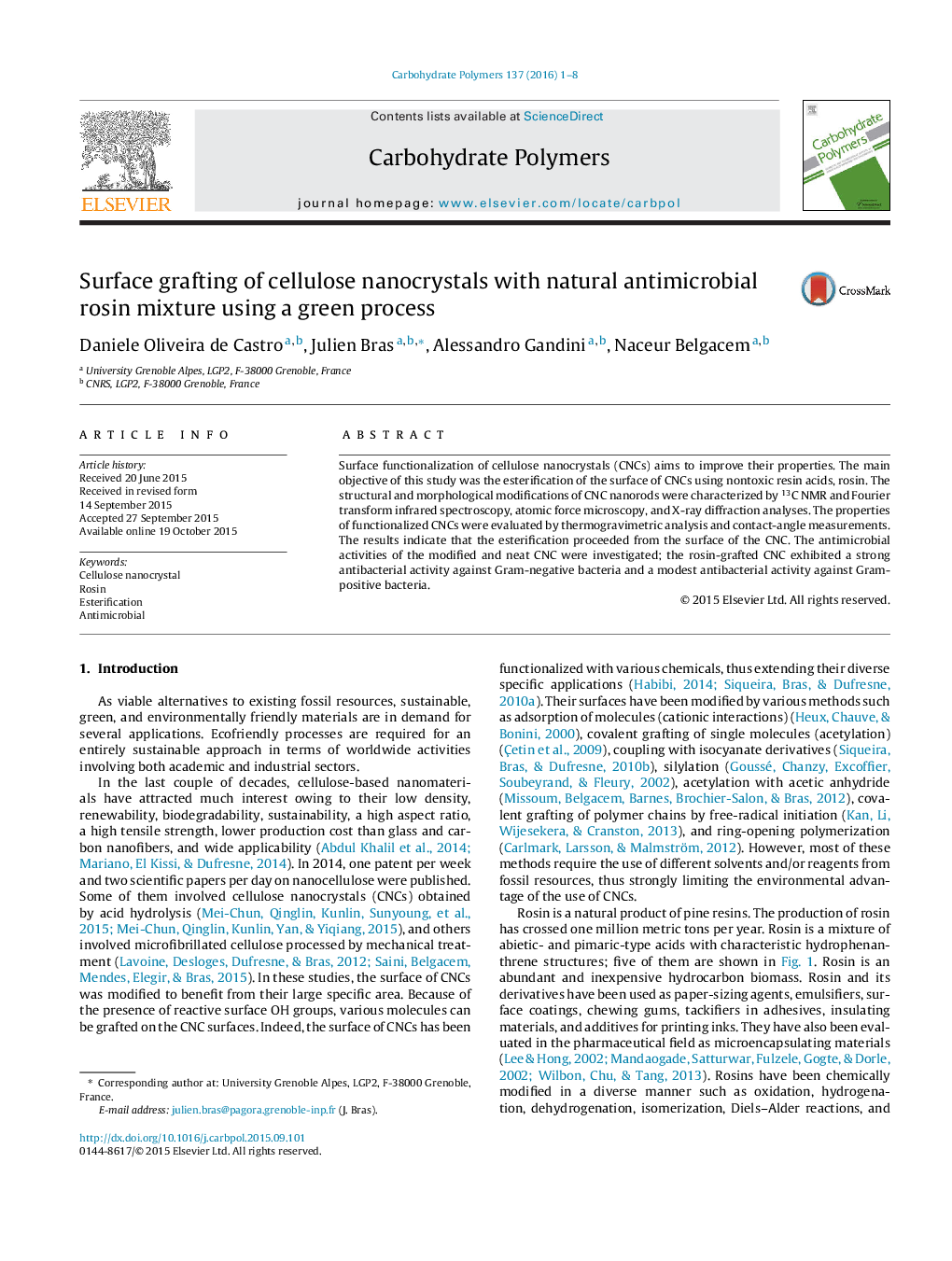| Article ID | Journal | Published Year | Pages | File Type |
|---|---|---|---|---|
| 1383134 | Carbohydrate Polymers | 2016 | 8 Pages |
•Rosin as grafting agent and reaction solvent on cellulose nanocrystals.•Successful esterification of CNC surface proved by different technique.•Rosin-modified CNC displayed strong antibacterial activity against the Gram negative bacteria.
Surface functionalization of cellulose nanocrystals (CNCs) aims to improve their properties. The main objective of this study was the esterification of the surface of CNCs using nontoxic resin acids, rosin. The structural and morphological modifications of CNC nanorods were characterized by 13C NMR and Fourier transform infrared spectroscopy, atomic force microscopy, and X-ray diffraction analyses. The properties of functionalized CNCs were evaluated by thermogravimetric analysis and contact-angle measurements. The results indicate that the esterification proceeded from the surface of the CNC. The antimicrobial activities of the modified and neat CNC were investigated; the rosin-grafted CNC exhibited a strong antibacterial activity against Gram-negative bacteria and a modest antibacterial activity against Gram-positive bacteria.
